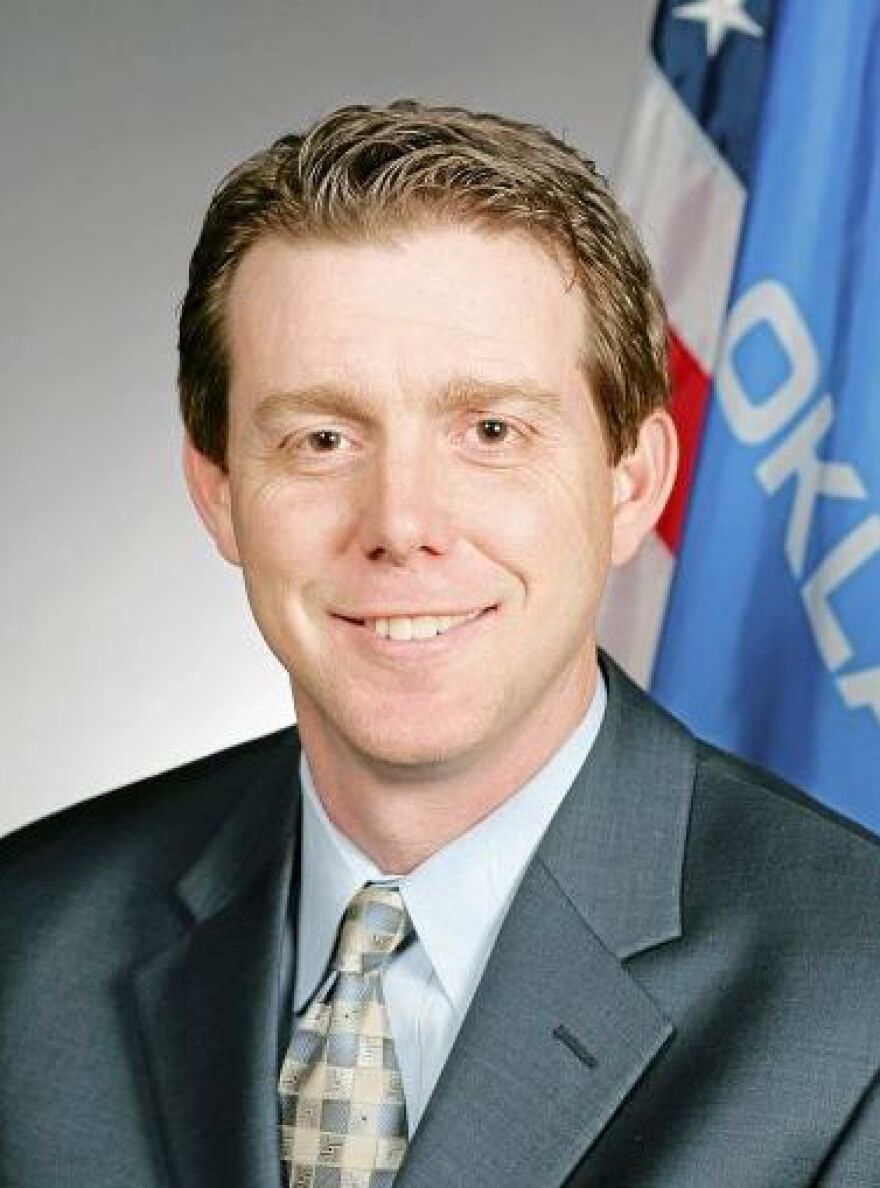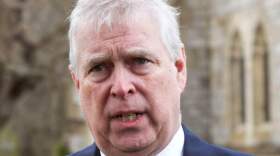Oklahoma faces a projected $1.3 billion budget shortfall in the next fiscal year, which could mean cuts to vital services like mental health, education, public safety and corrections. A few ideas are floating around the legislature to generate more revenue or to save money, like delaying implementation of the individual income tax cuts, tax credit reform, and criminal justice reform. But so far, the legislature has not yet passed any big, sweeping bills.
State Sen. Mike Mazzei, R-Tulsa, chairs the Senate Finance Committee, and his hands have been involved in several different pieces of legislation this year that deal with the budget. He spoke to KGOU’s Jacob McCleland on Tuesday in his Capitol office.
Interview Highlights
Let's talk a little bit about a piece of legislation that you authored that would have delayed implementation of the income tax cuts. Now, this never made it to the floor, but I'm just wondering, are there still possibilities that this could be brought up again during the remainder of the session?
Mazzei: Our goal was to get a wide variety of financial reform options out of the Senate Finance Committee so we could have lots of engagement by individual senators and transparency input and feedback from the community as well. At the current time we didn't run any of those big, major financial reform items through the traditional process and deadlines that the senate has, but all of those options, whether it's reduction in tax credit costs, dedicated cash flow changes from off-the-top monies and even the delay of the tax cut could come back through the actual budget process as we work towards an actual framework to deal with this year’s financial crisis.
That delay of implementation of the individual income tax cuts didn't receive a whole lot of support from leadership at the time. Have you heard anything to suggest otherwise, that this could be something that could be renewed and that discussion brought to the floor in any way?
Mazzei: There's an interesting amount of feedback when you talk about delaying the tax cut. I come from one of the most conservative, Republican districts in the state, in south Tulsa and every time I talk to constituents they say it is financially pragmatic and somewhat of a no brainer to delay the tax cut because the original threshold that was set for the tax cut to even begin was a $6.9 billion revenue mark. We never achieved that and right now we are at a $5.8 billion revenue mark. So, out there in our districts there is a lot of support for delaying the tax cut, amongst senators in the Oklahoma Senate there's a large number of Republican senators that think it's something that we have to consider and whether this latest revenue shortfall, this second one that we've been hit with changes the minds of some of the folks in the capitol in leadership positions, I don't really know at this point but I do know there's a tremendous amount of support both outside of this building and inside the building to take the pragmatic step of delaying the tax cut because it would help our current financial dilemma by $188 million.
Certainly not enough to resolve all of the problems but one step towards that 1.3 billion dollar projected shortfall for the upcoming fiscal year...
Mazzei: Correct. There is no one item that's a magic elixer to dealing with the financial crisis. For us to be prudent and responsible when it comes to funding core services, like education, public safety, roads and bridges, we have to look at a combination of targeted spending cuts, specific financial reform that increases recurring revenue, taking money off the table from special interest tax credits that just don't need the money. If we're going to do this right we have to look at a wide variety of options and not depend on one time spending gimmicks or borrowing money.
Are there any areas where the state should be looking at the budget to not only help this year but also to help in future years to avoid these types of situations from arising again?
Mazzei:l Well, obviously we have to look at spending and what is sustainable at this current level. We got, unfortunately, trapped into some bad habits of propping up spending, handing out more special tax deals and relying on $100 oil to keep our coffers full. You can't really have proper risk management at the state level where we have to balance the budget and lower tax rates while you increase special tax giveaways and crony capitalism. So, we now have to confront what is the level of spending we can afford and how much is that decrease going to be a part of an overall budget plan. There is obvious savings that can be met in state government.
I personally don't believe there are any more savings to be found in K-12 education funding, revenues for them are down 13 percent since 2009, the student population is up 40,000 and there is a shortage of 1,000 teachers. So, part of what you have to do in an ugly economic environment like this is not only look at how to deal with this situation but lay the groundwork for what's going to produce more growth and higher paying jobs and more revenue in the future, so, I think we have to be really careful with targeted spending cuts, trying to keep K-12 education funding as level as possible and have enough of these financial reform items in place so we can kick off a teacher pay raise.
Do you see a teacher pay raise happening this legislative session?
Mazzei: Well, I know if I had my way and we could actually implement a wide variety of these financial reform items options, there certainly is a reasonable way to kick off a $500-1000 teacher pay raise that would be part of a plan to get them up to or past the regional average, whether we can get all branches of the government to agree on a bold, aggressive approach to financial reform, I don't know yet.
What do you think of the one cent sales tax proposal for teacher salaries?
Mazzei: I am opposed to the one cent sales tax because it doesn't address the problems that we have in our financial management system as it is now. We have had other dedicated funding things for education in the past whether it was the lottery or gambling and what matters is the total amount you appropriate at the end of the day, not one particular item that is going to be dedicated towards education. I think it is a bad idea, it will hurt our local cities and it doesn't address the fundamental financial management reforms we need to address.
KGOU is a community-supported news organization and relies on contributions from readers and listeners to fulfill its mission of public service to Oklahoma and beyond. Donate online, or by contacting our Membership department.







